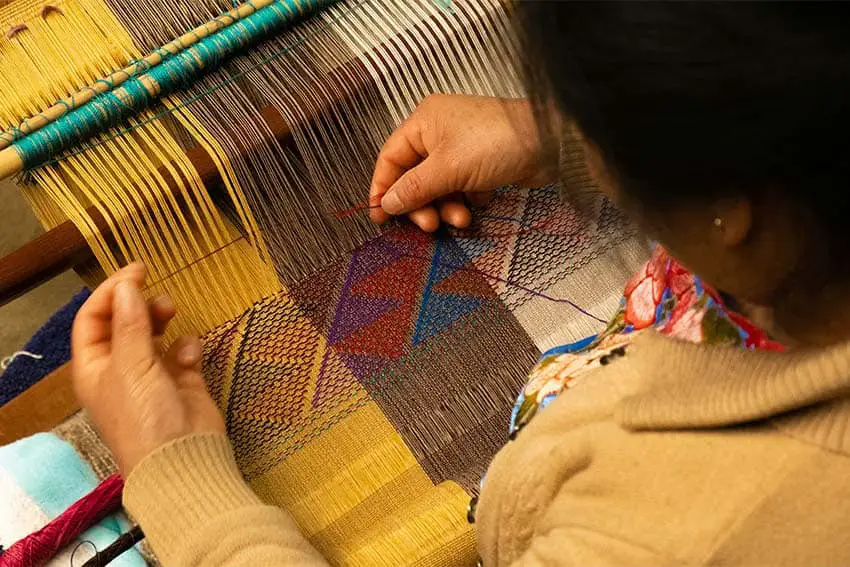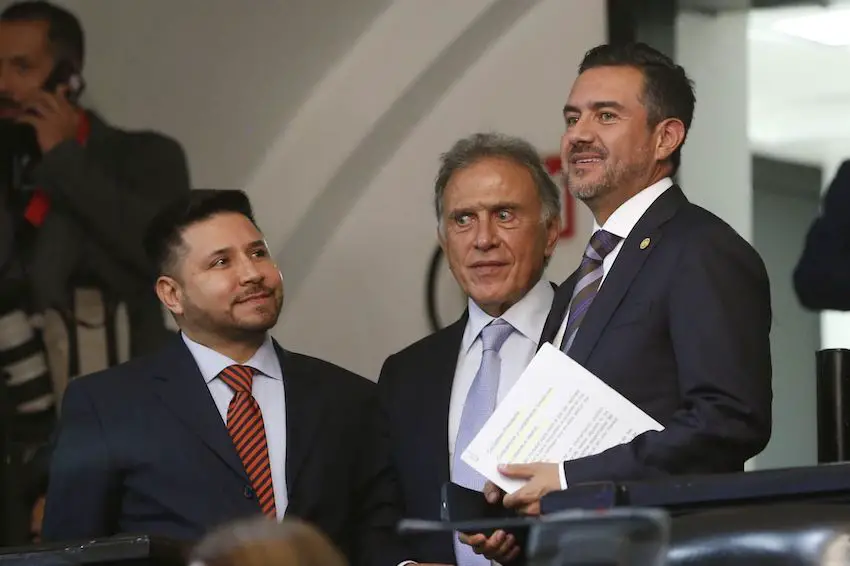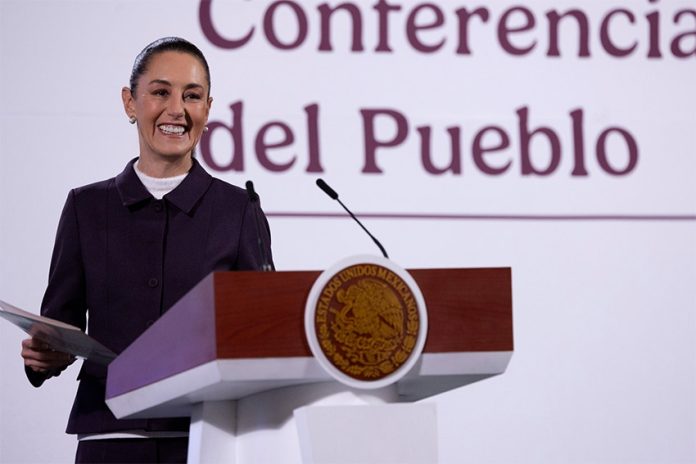Among the topics President Claudia Sheinbaum spoke about at her final press conference of the week were Mexico’s new textile tariffs, the Senate’s approval of the controversial judicial reform bill in September and the still-incomplete Mexico City-Toluca rail project.
She also told reporters that she won’t hold morning press conferences on Dec. 24 and 25.
New tariffs not aimed at China, Sheinbaum says
Sheinbaum bluntly declared that the new tariffs on clothing and textiles announced by the federal government on Thursday are not specifically aimed at China, even though that appeared to be the case.
“Some media outlets are today interpreting [the imposition of the tariffs] as if it were a message to China. No,” she said.
When a reporter suggested that the aim of the tariffs was to please Donald Trump, Sheinbaum said that wasn’t a motivation for the protectionist measure either.
“It has to do with the protection of the national [textile] industry. It’s part of what we call Plan Mexico, which we’re going to present at the start of January,” she said.

“… There are a lot of family companies — they’re not even large companies — that have been working on the manufacture of products and creating their own brands for decades,” Sheinbaum said.
Many such businesses (whose products have to compete with cheap Asian imports) have shut down in recent years due to “the entry of products” from abroad, she said.
Sheinbaum noted that some textile products — as Economy Minister Marcelo Ebrard explained on Thursday — are exempt from “certain” importation taxes on the proviso that they are used as inputs for final goods to be exported. However, “in reality” they are imported as final goods to be sold in Mexico, she said.
In light of the situation, the government announced Thursday that some textile products won’t be allowed to be imported at all.

Sheinbaum said that the sale in Mexico of textile products that were imported as inputs for products destined for export is “in reality a trick.”
“And who does it affect? All these family companies that provide a lot of employment,” she said.
“So what was done yesterday was to avoid this trick being used. If you look at it, it is in fact a form of corruption,” Sheinbaum said.
“… Asian products” are not specifically “the issue,” she said.
President asserts there was no ‘negotiation’ with PAN senator who voted in favor of judicial reform
As the ruling Morena party and its allies are one vote short of a two-thirds supermajority in the Senate, they have to convince at least one opposition party senator to vote with them in order to approve constitutional reforms. In the case of the judicial reform, that senator was Miguel Ángel Yunes Márquez, who was accused of being a “traitor” at the time and was ultimately expelled from the National Action Party (PAN).
As Mexico News Daily reported when the Senate approved the controversial judicial reform in September, there was widespread speculation that Yunes Márquez and his father, former Veracruz governor Miguel Ángel Yunes Linares, reached a deal with Morena that would result in the withdrawal of criminal charges against the two men and Yunes Márquez’s brother Fernando.

Yunes Linares, who stood in as a “substitute senator” for his son the day before the judicial reform vote, also indicated he would vote in favor of the reform if presented with the opportunity.
On Friday, Sheinbaum said it was her understanding that supporting the judicial reform was a decision that Yunes Márquez and Yunes Linares reached on their own without any discussion with Morena.
“It has been said that it was to … remove investigation files [against them]. … It was their decision to vote in favor of the reform to the judicial power. There was no negotiation,” she said, also dismissing the suggestion that a deal involving the Yunes’ defection from PAN to Morena was reached.
Asked whether Yunes Márquez and his father could formally join Morena, Sheinbaum said that was a decision for the party’s leadership.
“I’m not going to get involved in that issue,” she said.
Project to complete CDMX-Toluca train line is ‘advancing,’ Sheinbaum says
Sheinbaum noted that the final stretch of the Toluca-Mexico City passenger railroad is not yet complete, even though ex-president Andrés Manuel López Obrador said earlier this year that the section between the Santa Fe station and the Observatorio station would be finished by the end of the year.
“One part to get to Observatorio is missing,” she said, referring to the Mexico City terminus, where a subway station is also located.
“The project is advancing. At Observatorio the entire station has to be integrated with Line 1 of the Metro,” Sheinbaum said.
“We’re waiting for a bridge as well, it’s a suspension bridge that is being built before the entry to the fourth section of Chapultepec [Park], she said. “… They’re still working [on it].”
¡El Tren Insurgente es un sueño!
Imperdible el video del pequeño que presentó la presidenta @Claudiashein y se volvió viral al viajar en el @TrenInsurgente.
“Está muy bonito, puede volar. Siento que estoy en un sueño porque estoy en un tren que vuela”. pic.twitter.com/X2duieE5wd
— Michael Oviedo (@Mike_Oviedo) December 20, 2024
Sheinbaum didn’t say when the entire railroad — construction of which began a decade ago — would be finished. Trains are currently running between Zinacantepec, a municipality that adjoins Toluca, and Santa Fe on Mexico City’s west side. Much of the railroad is elevated.
Sheinbaum noted that she recently saw a “very cute video” on social media of a boy riding the train, known as El Insurgente.
In the video — which the president played near the end of her press conference — the boy declares that the train “can fly” and says that riding on it is “a dream.”
By Mexico News Daily chief staff writer Peter Davies ([email protected])
